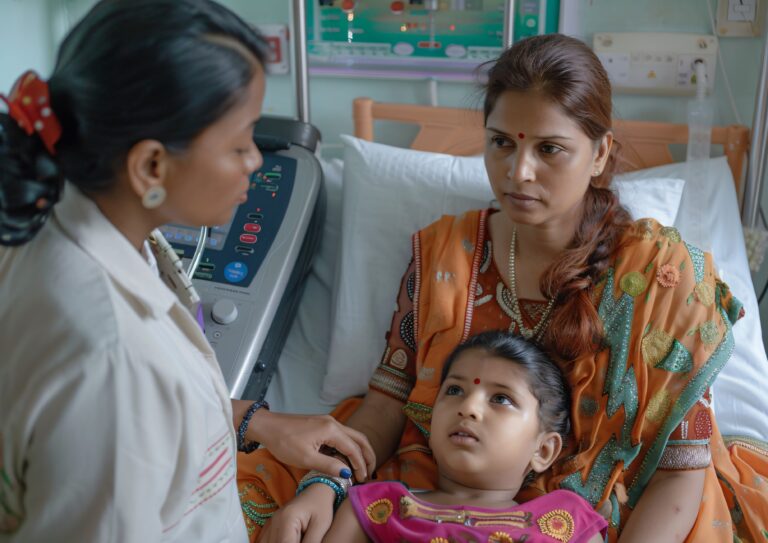The Travel Burden: Why Distance to Cancer Care is a Major Barrier in Rural India

less availability of oncologist in rural areas
Cancer is a tough battle, but for patients in rural India, the fight begins long before treatment – it starts with the struggle to reach a hospital. World-class cancer centres (such as Tata Memorial, AIIMS, and CMC) may be found in major cities like Mumbai, Delhi, and Vellore, but getting there is extremely difficult for patients from rural areas.
The Problem: No Cancer Hospitals Nearby
Patients from small towns may travel hundreds of kilometres for chemotherapy, radiation therapy, or surgery because the majority of specialised cancer facilities are found in metro areas, leaving rural and Tier 2 areas with little to no oncology infrastructure. In addition to heftytravel fees that occasionally surpass treatment costs, this difficult journey requires lengthy, tiring travels on buses, trains, or numerous autorickshaws simply to reach a big metropolis. The time away also results in lost revenue for daily wage earners, farmers, and labourers, further straining families' finances. Beyond the physical and economic toll, being separated from home for months takes a heavy emotional toll, adding mental stress to an already difficult battle against cancer.
The Hidden Costs of Cancer Treatment
The hidden costs of cancer treatment go far beyond medical expenses; patients and their families face significant difficulties during the months they spend in a large metropolis. Many are obliged to spend their resources on pricey rented rooms or overcrowded hostels because there is no inexpensive rented rooms close to big hospitals; others wind up sleeping on sidewalks or in homemade shelters. The emotional toll of family separation, which leaves children and elderly relatives back home without their primary caregivers, only heightens the financial strain and adds another level of distress to an already challenging journey.
Possible Solutions
While the challenges are significant, practical solutions can help bridge the gap in cancer care accessibility. By facilitating remote consultations, telemedicine provides a lifeline by eliminating the need for tiring travel alone for diagnostic and treatment planning. By providing basic care and necessary screenings directly to remote populations, mobile cancer units help identify instances early. Long-term stays could be less expensive with government-funded transit subsidies and reasonably priced hostels close to important hospitals. Most significantly, enlarging oncology departments at remote hospitals would significantly cut down on travel times, guaranteeing prompt care without forcing patients to leave their support networks. Together, these strategies have the potential to make cancer treatment available to all Indians, eliminating it as an urban privilege.
The fate of a cancer patient shouldn't be determined by distance. Even while India has top-notch cancer hospitals, rural areas require more easily accessible and reasonably priced care. We can reduce the strain of travel and save lives by making investments in telemedicine, mobile units, and improved local facilities.
Every patient deserves a fair chance to fight cancer—without the added struggle of a long, costly journey.












